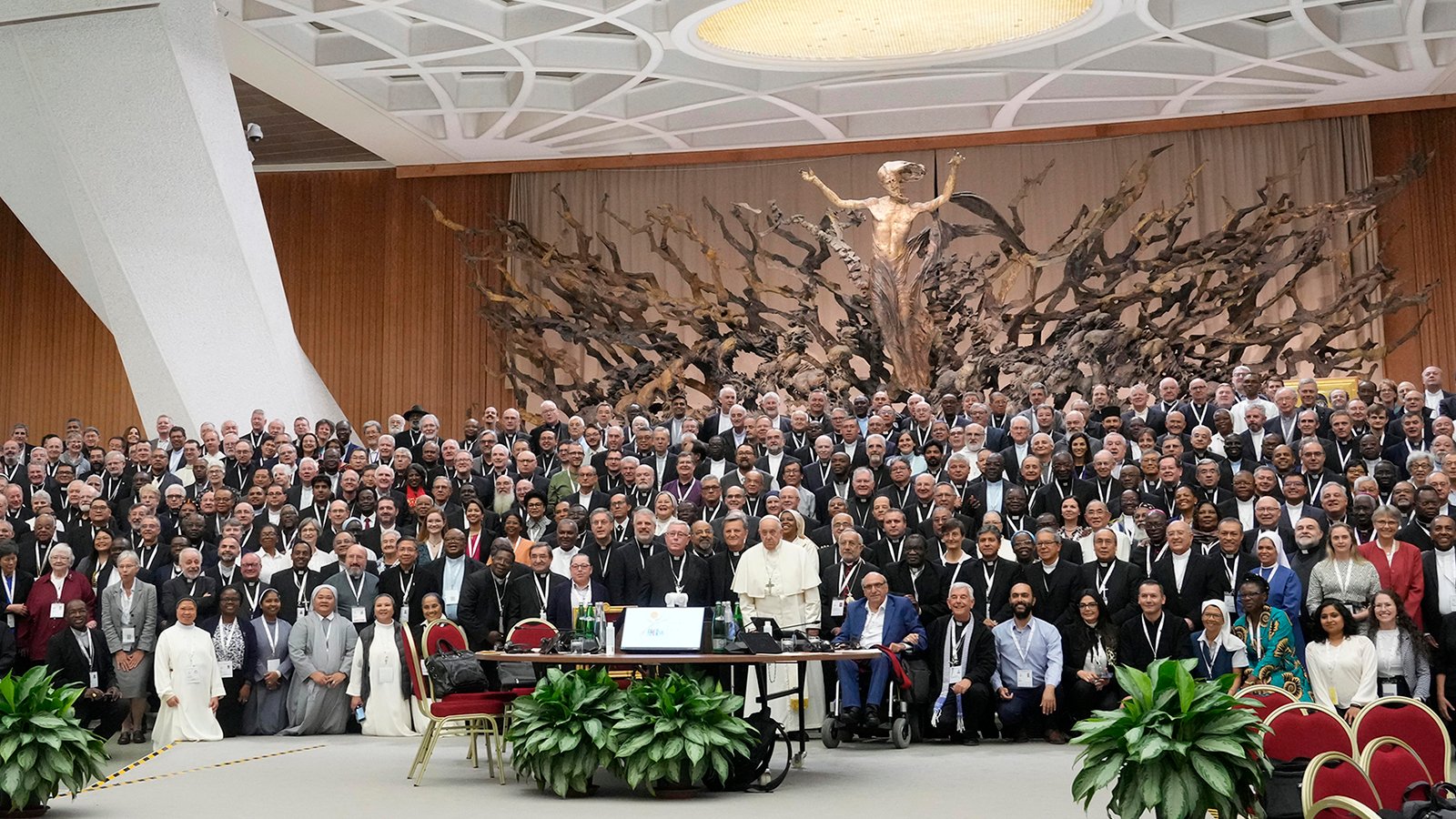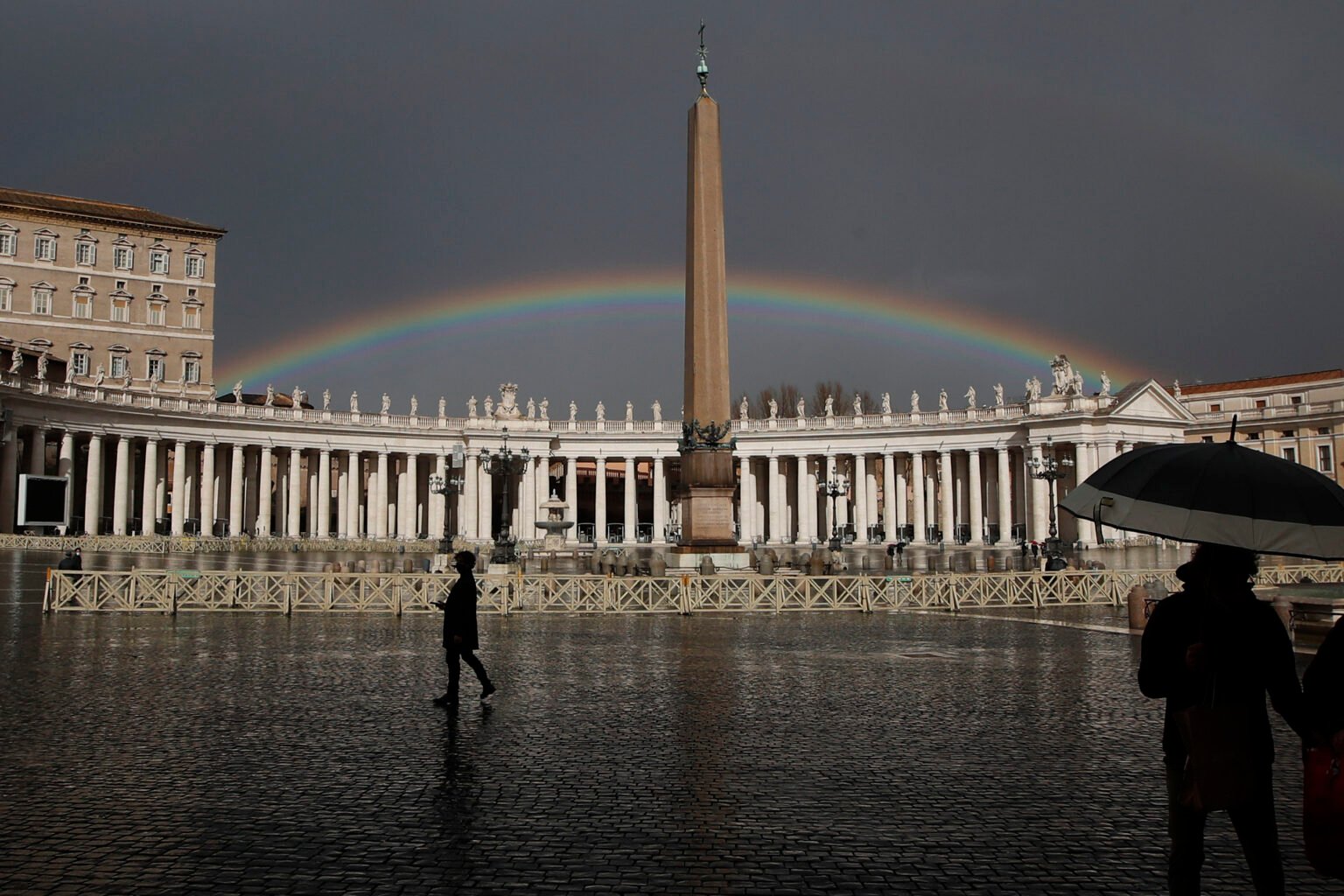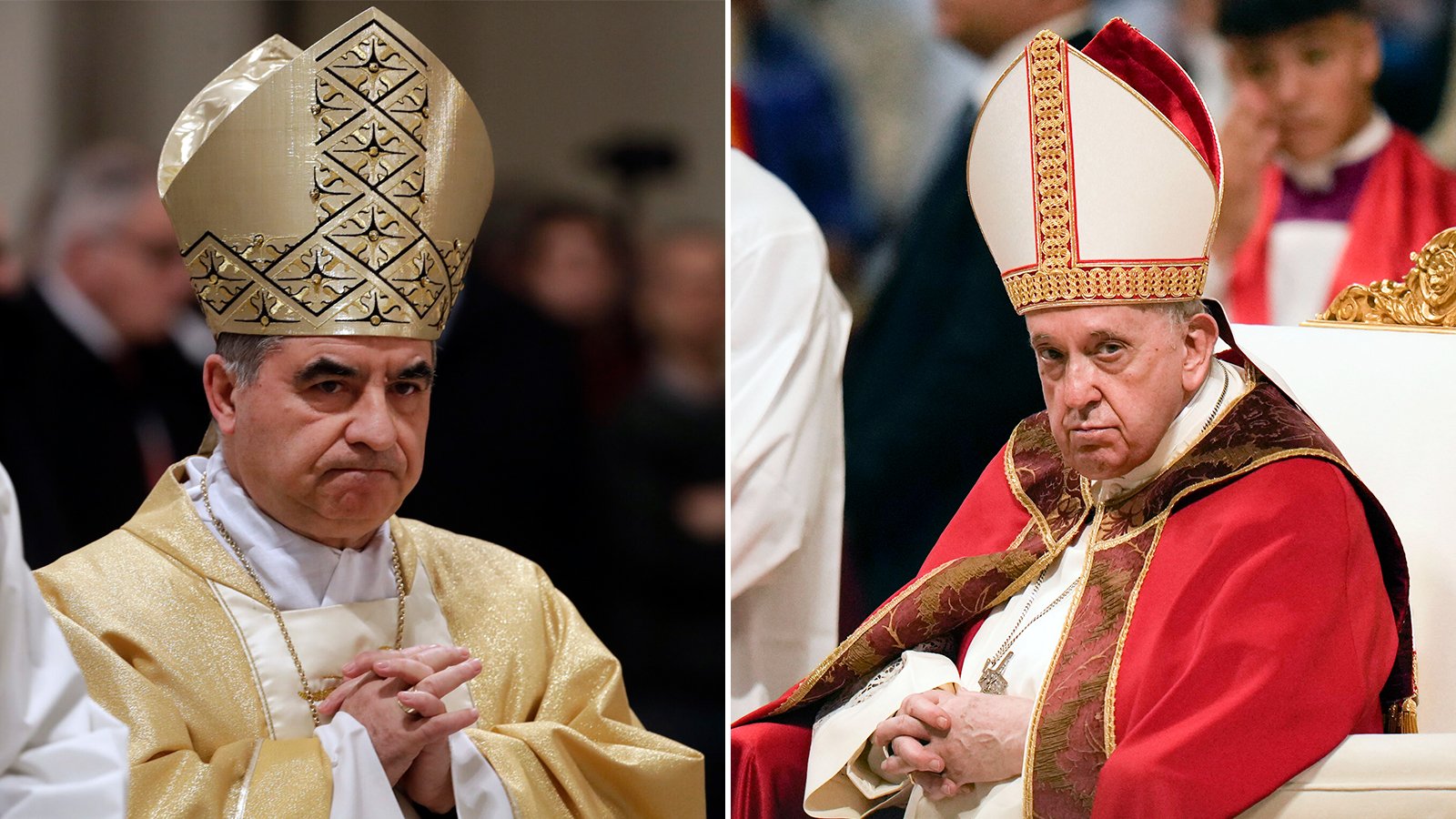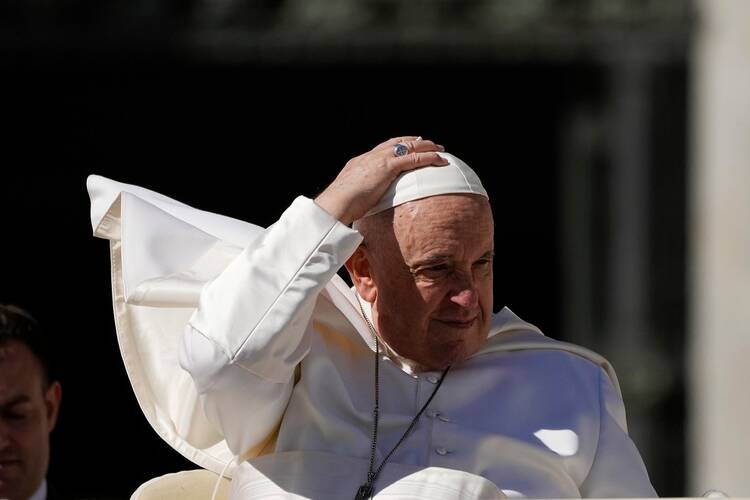VATICAN CITY (RNS) — In a year that began with the funeral of his predecessor, Pope Francis, who marked the 10th anniversary of his own election in March, stepped up his reforms of the Catholic Church, and by year’s end he could point to a series of wins in shoring up Vatican finances, reducing corruption and enacting his plan for a more welcoming and inclusive church. He had also marginalized several outspoken critics.
But 2023 also exposed the weaknesses of this pontificate. Under Francis, the church continued to stumble in dealing with sexual abuse, extending the perception the hierarchy still doesn’t take the problem seriously. Despite concerted diplomatic efforts, the pope failed to project real influence over foreign affairs, especially in the major conflicts in Ukraine and the Mideast. His age and his medical scares, meanwhile, had many Vatican players considering a church under Francis’ own successor.
But as the following top stories of 2023 from the Vatican show, Francis steadily made news by pushing his vision for the church despite the challenges.
1. Pope Francis strengthens his position inside the Vatican and beyond
For much the first 10 years as pontiff, Pope Francis lived in the shadow of the previous pope living inside the Vatican. With Pope Benedict XVI’s funeral Jan. 5, Francis was finally able to move past the Benedict era, cementing his legacy while eliminating opposition in and outside the Vatican.
In early January, papal critic Cardinal George Pell died in a Roman hospital due to complications from hip replacement surgery. Pell had issued memos to fellow prelates calling Francis’ pontificate “a catastrophe.”
In June, Francis sent a delegation to investigate the diocese of Bishop Joseph Strickland of Tyler, Texas, a vocal opponent of Francis’ pontificate, and in August rapped his American critics for, he said, replacing faith with ideology. By November, Strickland had been fired from his post, and soon after the pope removed Cardinal Raymond Burke, who had replaced Pell as the de facto leader of conservative opposition, from his Vatican apartment and took away the cardinal’s stipend.
The pope also solidified his position at the Vatican by appointing a close friend and fellow Argentine, Monsignor Victor Manuel Fernández, to lead the Discastery of the Doctrine of the Faith. Francis later made Fernández a cardinal, along with 20 others. The pope has now appointed a majority of the cardinals who will elect his successor.
2. The Synod on Synodality shows a new way to govern the church
The month of October saw a major summit of Catholic bishops and lay individuals at the Vatican, called the Synod on Synodality, convened by Francis to address issues raised by worldwide listening sessions in local dioceses. The gathering considered questions ranging from LGBTQ inclusion to female ordination to church structure.

AdChoicesSponsored
Ahead of the summit, in April, Francis made an unprecedented decision to allow lay Catholics, including women, to have a vote at the synod. Its lively discussions were for the most part kept under wraps at the pope’s urging, but reports showed that the most time was spent on the roles of women and laypeople.
The final document emerging from the synod did not usher in the sweeping changes some had hoped for — and others had feared. Instead, it suggested that synodality, a way of governing the church through dialogue, was the church’s future. While the Catholic world waits for the second part of the summit, scheduled to take place next fall, it’s up to the pope to discern and guide its impact.
3. The church moves toward LGBTQ acceptance
Beginning with his famous 2013 response to a question about LGBTQ Catholics — “Who am I to judge?” — Francis has signaled a new acceptance despite church teaching about homosexuality. In an interview with The Associated Press in January, the pope stated that “being homosexual isn’t a crime.”
A June document summarizing the discussions at the synod called for the “radical inclusion” of LGBTQ Catholics, underscoring the importance of this topic to many Catholics around the world. Francis had invited James Martin, S.J., a prominent advocate for LGBTQ inclusion in the church, to take part in the gathering.

In a written response to a series of questions by five conservative cardinals in October, Francis opened the door for the blessing of same-sex couples. In December, a declaration by the Vatican’s department for doctrine sanctioned priests to bless same-sex and “irregular” couples, provided the practice not resemble a wedding.
In another document by the doctrinal department, the Vatican approved trans individuals for baptism and to act as godparents. A trans community from the outskirts of Rome was invited to join the pope for his yearly lunch for the poor at the Vatican.
4. A pope between two wars
Francis has been active in his efforts to promote peace in Ukraine and the Holy Land. In May, he appointed the president of the Italian bishops conference, Cardinal Matteo Zuppi, to act as peace envoy in Ukraine. The cardinal visited Kyiv, Moscow, Washington and Beijing to offer mediation in the conflict and joined with other religious representatives to make an appeal for peace.
But Francis was harshly criticized for praising the imperial past of the czars while speaking to Russian students in August, and his refusal to assign blame to one side or the other in the Ukraine war caused backlash and frustrated his diplomatic outreach. Meanwhile, his use of the term “terrorism” to describe the activities of both Israel and Hamas in the Mideast was met with anger and dismay by some.
5. The shadow of sexual abuse in the Rupnik case
The Rev. Marko Rupnik, a Jesuit artist who was expelled from his congregation after credible accusations of sexual, spiritual and psychological abuse of adult women, deeply divided the church and underlined the challenges that remain in the institution’s handling of sex abuse cases. The Diocese of Rome, led by Cardinal Angelo De Donatis, had to issue a formal apology for allowing the priest to remain active in his parish despite the accusations against him.
6. A historic sentence for a historic Vatican trial
Closing the year, a Vatican tribunal sentenced nine individuals — including Cardinal Angelo Becciu — with punishments ranging from fines to significant prison time for their various roles in a controversial real estate deal that had cost the Vatican millions. It was the first time a cardinal was tried and convicted of financial crimes in the church, signaling a new era in the Vatican’s financial reform efforts.

Though many of the accused will appeal, the sentences, after a trial that lasted almost three years, were interpreted as a decisive win for the pope and his reforms of the Vatican’s notoriously corrupt and mismanaged finances.
7. Health scares curb papal visits
In March, Francis was admitted to the hospital for a respiratory infection that caused him to skip liturgical functions and celebrations. In June, Francis underwent a hernia surgery and had to stay at the hospital for nine days. He was sick again in November with an inflammation of the lungs, which kept him from attending the COP28 summit for the environment in Dubai. But despite his ailments, Francis, who turned 87 in December, shows few signs of slowing down.








